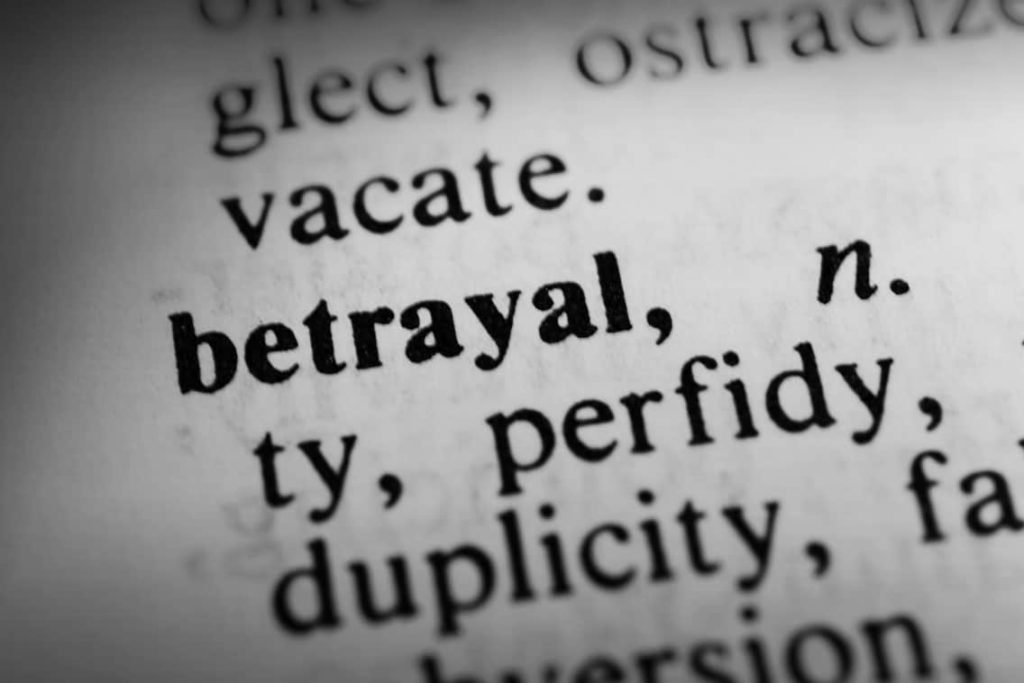
The word ‘integrity’ is one which has many facets. It is closely aligned to another word ‘wholeness’. Both words speak of human flourishing in terms of health, honesty and goodness. Integrity has a special link with the idea of moral trustworthiness. A person of integrity is someone who can never betray moral principles in order to preserve their own interests or those of another party, such as an institution. The great examples of martyrdom in Christian history were individuals who suffered the supreme sacrifice of life itself rather than betray this personal integrity.
There is a word in the New Testament which is often translated ‘perfect’ but has a meaning close to our idea of integrity. ‘Be ye perfect, even as your Father in Heaven is perfect’. I have always mentally translated the Greek word ‘teleios’ as relating to our notion of integrity and wholeness. ‘Be people of integrity’ certainly seems to do justice to the Greek word. If we are in any doubt as to what the word means, we need look no further than the example of Jesus himself. I am not due to preach this Passiontide but no doubt if I were, I would want to explore how the life and death of Jesus are an outworking of both the meaning and practical implications of ‘integrity’. Jesus was a man of whom it could always be said that his yes meant yes and his no meant no. For the eyes of faith, the Crucifixion itself is a supreme proclamation of integrity. It is one which can be pondered and internalised by the followers of the crucified one.
There is one particular genre of literature much preoccupied with the idea of integrity. This literature is known as Greek tragedy. In a series of surviving plays acted in the open theatres of ancient Greece, two authors, Euripides and Sophocles, struggled with the big questions around human integrity when brought up against the demands of law and custom. The heroes of these gripping dramas typically found themselves in situations where there was no happy ending or correct choice to be made. In what seems like endless monologues, the hero bewails the fate that awaits him/her because she has to follow through with what choice, honour and integrity demand. Execution, suicide or self-mutilation seem to mark the conclusion in all these plays. The audience of these dramas was invited to identify with the dilemmas of life as presented by the dramatist. How does one preserve one’s integrity in the face of conflicting values? Society on the one side may tell us one thing while personal conscience may dictate something quite different.
In a small way I see the Church of England being caught up in a drama not dissimilar to a Greek tragedy. The central actors are the bishops of the Church of England, especially the Archbishop of Canterbury himself. The Archbishop was interviewed by Cathy Newman on Channel 4 News last week. The topics ranged from Brexit to the stalled inquiry of John Smyth’s abuses. A man of deep integrity was revealed. Archbishop Welby had obviously been affected by the suffering of those who had been the victims of Smyth. But there was another side revealed in the interview. In answering the questions about Smyth, there was a rehearsed almost formulaic quality about the answers. Someone, surely not the Archbishop himself, had created a narrative of distancing Smyth from the Church of England. The fact that Smyth on his African ministry had identified with non-Anglican churches was somehow extrapolated back to his time in England. Smyth was never a true Anglican. Surely the Archbishop or his advisers knew that Smyth had been a Reader in the Church. I have never heard of anyone calling themselves a Reader who was not a baptised, confirmed member of the Church in good standing. A second myth about Smyth was trotted out. This time it concerned the organisations associated with him and thus indirectly overseeing all his activities while he was in England. Like Smyth himself these organisations were distanced from the Church of England and presented as outside church control. In my perusal of the documents connected to the Iwerne/Titus Trustees I have never seen a single name who was not a licensed officer or member of the national church. The network that binds together Iwerne/Titus alumni has always been 100% Church of England. The Archbishop knows this well. Separation in a legal sense may be claimed but there is no clear moral case for seeing the Church of England as standing apart from the activities of Smyth. Also, those who, with arguably greater guilt, covered up Smyth’s activities for 30+ years were all individually card-carrying members of the Church of England.
The judgement that is being made of our Archbishop in this blog is that he is indeed a man of integrity in a Christian sense. He genuinely feels the pain of those who have suffered and seems to want to do the right thing to relieve that suffering. But there is a real sense in which his integrity is being severely compromised by outside loyalties to mysterious forces who are setting the wider agenda and who care little for these needs. Unlike the main characters in a Greek tragedy, the Archbishop does not have to suffer pain in order to keep his integrity. By repeating the establishment line, he manages to avoid experiencing the real costs of his position of sincerity. He manages to live simultaneously in two places. He identifies with survivors/victims while remaining loyal to those who shut them out for being too disruptive to the status-quo. The same thing seems to be happening over the arrangements for Lambeth 2020. The protestations of pain that he has had to suffer (by banning same-sex spouses) in order to serve the greatest good may be true, but one still hears the voice of establishment creatures who are manipulating the narrative behind the scenes in order to pacify the forces unleashed by the American Right.
The current events in the Church of England thus have some of the elements of a Greek tragedy. But one element that is missing is the readiness of the central characters to sacrifice themselves to show their utter dedication to their principles. As we approach the Cross, we see the central actor of the drama ready to give everything to proclaim his integrity and his complete faith in God. Integrity, Christian integrity is sometimes to be found in our church. Here in the Lambeth discussions and the Smyth inquiry interview on Channel 4, that quality is being compromised because the chief players are allowing themselves to be part of a hidden institutionally directed narrative. These dark controlling forces that seem to have coached Welby in his carefully articulated but unconvincing answers last week have no names. Whoever they are, they appear to be completely dedicated to the preservation of the institution, even if some people (the survivors) are hurt or destroyed in the process. The conservative values of institutions like the C/E, the preservation of the status quo at any cost, have little time for the values of Christian integrity or any values for that matter. As a result, we see the way that leaders are required to undermine or even destroy their reputations for posterity. The Church will always honour the memory of people of integrity and honour. It will be less impressed by those who followed the way of toeing the party line, even when they knew that line to be false and dishonest.








